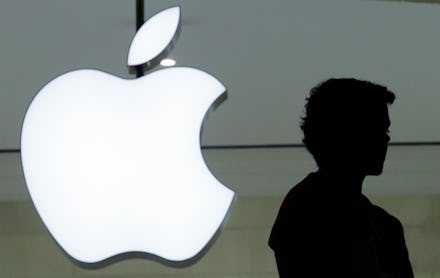Apple, Google, Microsoft, Cisco, IBM and other big tech companies top list of tax-avoiders

When you think "millions of dollars in tax avoidance," what comes to mind? Maybe Republican presidential nominee Donald Trump — or big financial firms like Wells Fargo?
Turns out the scale of the problem is more like "hundreds of billions of dollars" — and the worst offenders aren't even on Wall Street.
They're in Silicon Valley.
Five of the top 10 biggest tax-avoiders — ranked by dollar amount held offshore — are big tech companies, with Apple ranked as No. 1 and Microsoft at No. 3, according to a new study published Tuesday.
The report, authored by researchers from Citizens for Tax Justice, the Institute on Taxation and Economic Policy and the U.S. PIRG Education Fund, found that 73% of U.S. Fortune 500 firms — more than 300 corporate giants — have money stashed in tax shelters abroad, including the Netherlands and Bermuda.
While this practice is totally legal, there's a growing case that the existing law is deeply flawed.
Take the total sum lost in federal tax revenue.
If big companies were instead to pay tax on their earnings at home, according to the report, it would result in a windfall of more than $700 billion — enough to completely eliminate the 2015 U.S. budget deficit of $439 billion, with a nice chunk of change left over.
That's money arguably being stolen from middle-class pockets, as President Barack Obama explained in an April speech, "It means that we're not investing as much as we should in schools, in making college more affordable, in putting people back to work rebuilding our roads, our bridges, our infrastructure [and] creating more opportunities for our children."
Again, using corporate tax loopholes is not illegal, and plenty of companies take part. But Silicon Valley firms are proving to be especially adept at using the convoluted rules to their advantage: According to the report, by stashing more than $200 billion overseas, Apple has avoided more than $65 billion in U.S. taxes — legally.
Here's the full top 10 list, ranked by amount of money held offshore:
1. Apple: $214.9 billion
In addition to household drug firms like Pfizer and Merck, consumer-facing Johnson & Johnson appears in the top 10 — and farther down the list you'll see household names like Wal-Mart, PepsiCo and Coca-Cola, which all stash between $26 billion and just over $40 billion overseas.
There's no doubt that some tax-avoiders are worse than others: As the report noted, despite the fact that nearly three-quarters of the 500 largest U.S. companies are involved in tax avoidance in some way, 66% of the money held overseas is held by just 30 firms.
How do they get away with it?
As the report explained, the main tactic is setting up subsidiaries (think of these like "baby companies" that report to a parent company) in other countries where tax rates are lower. Companies go to great lengths to make it look like the money was earned from real business activity in these countries, although that's often not the case.
Goldman Sachs, for instance, has nearly 1,000 subsidiary companies set up in tax havens, including 537 in the Cayman Islands alone, according to the report. But Goldman's own website lists zero offices in Cayman, the report noted, making it a little hard to believe it's doing tons of business there.
The 700-billion-dollar question is whether the next White House administration will be serious enough about tax reform to successfully implement change.
Democratic presidential nominee Hillary Clinton has made ending "corporate inversions" (the term of art for shipping earnings overseas) a major part of her economic platform. And even alleged tax-avoider Republican presidential nominee Donald Trump has railed on tax loopholes; he claims reducing corporate taxes would make inversions "unnecessary."
But it's important to look past rhetoric to the nitty-gritty facts of each candidate's plan.
The devil is in the details — and as some experts point out, fixing the law with more bad law will just make matters worse.
Oct. 4, 2016, 2:29 p.m. Eastern: This story has been updated.